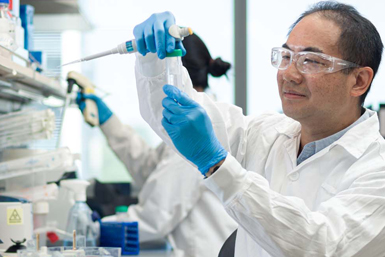As an Academic Medical Centre, NUHS has a robust 'Human Research Protection Programme' to protect the safety and well-being of research participants.
All clinical studies, involving human participants and conducted in NUHS, are reviewed by independent institutional review boards (IRB) appointed by NUHS. The IRB is an independent committee constituted of medical, scientific and non-scientific members, whose responsibility is to ensure the protection of the rights, safety and well-being of human participants involved in a clinical study by reviewing, approving and providing continuing review of clinical studies and amendments, and of the methods and materials to be used in obtaining and documenting informed consent of the research participants.
Clinical studies, such as clinical trials, that are regarded as more than minimal risk to participants are reviewed by a 'Full Board Review' process. Full Board Review means that a group of members from the IRB gather at a convened meeting to collectively review clinical studies to ensure that the research meets certain criteria before study procedures are initiated. The criteria are based on the principles of autonomy, beneficence and justice in the Belmont Report.
In general, a clinical study must fulfil the following criteria:
- Risks are minimised, and are reasonable in relation to anticipated benefits.
- Selection of participants is equitable.
- Informed consent will be sought, and appropriately documented.
- Adequate provision for monitoring of data to ensure safety, protection of privacy of research participants and confidentiality of data collected.
- Additional protection for vulnerable populations.
Clinical studies approved by the IRB are reviewed at least once a year, and the frequency of review may be increased if the degree of risk is higher. During this renewal process, the investigator conducting the research must provide a report of the study status and other safety information. The IRB will then review these studies again to ensure the rights, safety and welfare of the research participants are protected.
In addition, no deviation or changes to the approved study is allowed without approval from the IRB.
For more information regarding the review process by DSRB (IRB appointed by NUHS), click here.




















